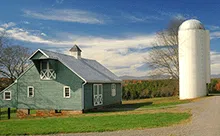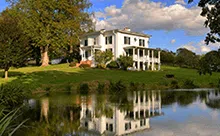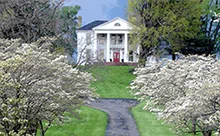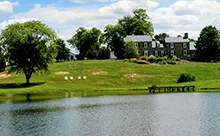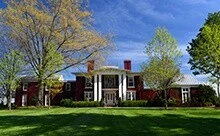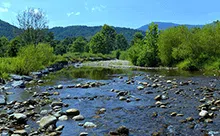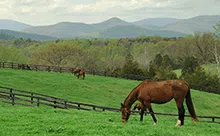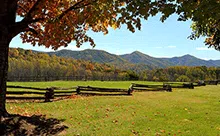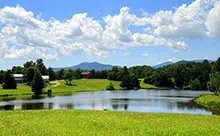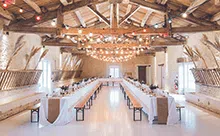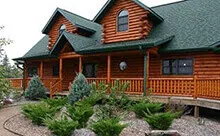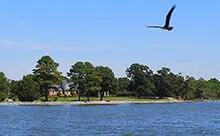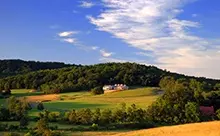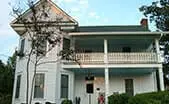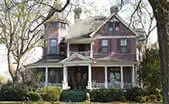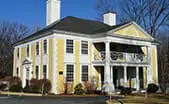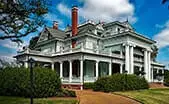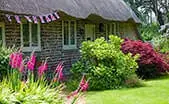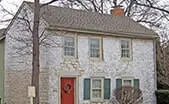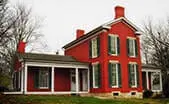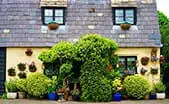home / real estate listings / virginia historic homes / charlottesville historic homes
Charlottesville Historic Homes For Sale
If you are considering buying a Charlottesville historic home browse through our listings by price or by the year the home was built. We can set you up with one of our specializing Realtors who can assist you in your goal of owning a unique piece of Charlottesville history.
Historic homes for sale in Charlottesville
-
If you are looking to purchase a historic home, Charlottesville is an ideal place to look. History runs deep in Charlottesville and dates back to the beginnings of this country. Charlottesville and surrounding areas were made home to many founding fathers. Below you are able to search our listings of historic homes for sale in Charlottesville by price or year, or even browse through our featured listings.
-
The architectural history throughout Charlottesville is noticeable from Thomas Jefferson’s Monticello to the Albemarle County Courthouse. Dabbled through the city are homes and buildings that represent all eras and aspects of history. Some of the most popular neighborhoods speckled with historic homes for sale include:
- Historic Downtown/North Downtown
- Belmont
- Martha Jefferson
- Locust Grove
- Woolen Mills
- Ridge Street
- Starr Hill
- Rose Hill
- 10th & Page
- Jefferson Park Avenue
- Fry Springs
- Barracks/Rugby
Charlottesville itself was formed in 1762, and at that time the courthouse and jail were the most prominent public architecture. In 1803 a new courthouse was built to replace the old one, and remains today. Taverns, shops and businesses sprouted up in and around Court Square, which is modern day “The Historic Downtown.” This area was frequented by some famous people of our past including Monroe, Jefferson, and even Madison. Today you will still find beautiful architecture, vibrant shops, and restaurants in this area.
Belmont is the Brooklynn of Charlottesville, per se. The Ficklin Mansion is a historic home you will find tucked away in this growing neighborhood. It was originally a 551 acre estate, but in 1890 the property was subdivided to create the bones of the now Belmont neighborhood, and the estate is now divided into apartments. In the 1970’s the neighborhood had hit some pretty low low’s, with crime rates being some of the highest in the city. By 2005, home prices were soaring in the $400,000’s, and the restaurants and coffee house were some of the most popular places in Charlottesville. Now commonly referred to as the SoHo of Charlottesville.
Charlottesville, VA Real Estate
The Martha Jefferson Historic District was named such by the City Council in October of 2010. The area first began as the Locust Grove Farm, and was subdivided over the course of the century. In 1903 the Martha Jefferson Hospital was built, and the neighborhood had the Locust Grove Investment Company pumping money into it. This neighborhood has seemingly always remained one for the middle and upper class citizens of Charlottesville, and its nearness to downtown made it extremely popular. Here many of the historic homes for sale are built in Victorian style, or Bungalow style the majority of the time. Martha Jefferson Hospital has since relocated and the former hospital was renovated and is now home to CFA Institute offices.
Historic homes for sale can also be found in the Woolen Mills Historic District. This area is neighbored by Belmont, Martha Jefferson Historic District and Locust Grove; it is also bound by the Rivanna River and Moore’s Creek. This historic district made it onto the National Register of Historic Places in April of 2010. Woolen Mills began as a vital textile manufacturing facility, which shut its doors in the 1960’s. The housing community that arose began as a neighborhood for those who worked at the facility.
Whereas some of the neighborhoods in Charlottesville were not listed in the National register until this decade, Ridge Street District was listed in the early 1980’s. Alexander Garrett’s Oak Hill Estate was originally standing historic home in this area. The neighborhood was further developed in 1840, and by the 1870’s-1880’s became the place to live for the wealthy shop owners and business owners of Charlottesville, but was also largely inhabited by African Americans, and the communities associated regularly. Many of the historic homes in this area were fairly large and converted into multiple apartments, but the process to return them to single family homes is well under way.
Throughout Charlottesville the historic homes and architecture help tell a story of the past, as well as indicate where Charlottesville is headed. The community of Charlottesville holds great pride in their city, and wish to maintain a sense of small town amidst the growth that is occurring towards the busier bustling parts of the city, such as 29 North. The desire to hold onto the historic architecture throughout the city leaves many historic homes in great shape, having already been renovated, as well as the ability to find a historic home for sale that is in need of love and restoration. For further information on the historic homes Charlottesville has to offer, be sure to contact Virginia Estates.
From Monticello to the splendidly restored Paramount Theater to Edgar Allen Poe’s dorm room, Charlottesville is a town simply brimming with rich architectural history.
Historic gems are readily viewable in the well-loved Downtown and Park Street areas. Yet almost any drive in the country will also reveal vistas featuring magnificent residences whose stories one can’t help but wonder at.
If you are considering purchasing a Charlottesville historic home, we hope you will give us a call at Virginia Estates. Our agents that specialize in the historic home market will be delighted to assist you in any way they can.
There are special considerations involved with purchasing a Charlottesville property including determining structural soundness, analyzing how a potential renovation will factor into your price range, and navigating a landscape of zoning laws, permit requirements, restrictive covenants and other law associated with owning a historic home.
However, buying and restoring a historic home also offers possible benefits including funding programs, special financing, and future tax breaks which our agents can help you to understand.
While the purchase and possible renovation of a Charlottesville historic home may seem a daunting yet desirable task, our agents have both an in-depth knowledge of the current offerings available as well as extensive experience in helping clients step-by-step through the process of determining their criteria, assessing possible matches, negotiating a great deal and handling a smooth closing on a Charlottesville historic home.



















